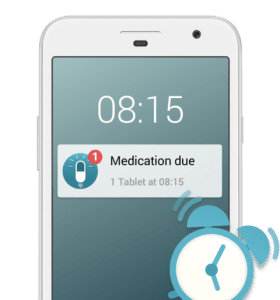In the last two decades, the consumption of energy drinks in America has been increasing significantly. It has become one of the most popular dietary supplements in the nation, particularly among teenagers and young adults. Many people love to sip energy drinks to combat fatigue. After all, various energy drink companies claim that their products can enhance mental alertness and physical performance. Consuming these “magical” drinks, however, may cause health problems. The number of energy drink-related visits to emergency departments in the US doubled between 2007 and 2011. Ten years later, the situation isn’t improving. More and more people are starting to question the effect of consuming energy drinks regularly. Are energy drinks bad for our health? Is there any “energy boosting” alternative drinks? Continue reading to find out the answers.
What is considered energy drinks?
An energy drink is a type of drink that is marketed to increase alertness and energy levels by stimulating our body. Because it is designed to give an “energy boost”, many people often assume that energy drinks are the same as sports drinks (Gatorade), but they are two different products.
The major constituent in most sports drinks are carbohydrates and electrolytes (minerals such as chloride, calcium, magnesium, sodium, and potassium). In contrast, the main active ingredient in energy drinks is caffeine. Coffee, tea, and other natural caffeinated drinks are, however, not usually considered energy drinks. Other soft drinks (cola) and alcoholic drinks (Buckfast Tonic Wine) also contain caffeine but aren’t energy drinks either.
What do energy drinks typically contain?
According to USDA, a typical 8 oz (250 ml) energy drinks (Red Bull) contains the following: 232 g water, 26.6 g or more of sugar (from sucrose and/or glucose), 75.4 mg or more of caffeine, and B vitamins, among other nutrients.
The composition and the amount of each nutrient differ from product to product. For example, some energy drinks may contain carbonated water, some may have alcohol in the mixture, and some don’t contain sugar or have less amount than the number above.
How do energy drinks work?
The answer to this question lies in the three main ingredients of energy drink and their role in producing energy for our body. Let’s take a closer look at those.
- Caffeine
Caffeine is known as an ergogenic compound that raises the heart rate and blood pressure. The cognitive performance boost from energy drink consumption (such as increased concentration) is thus, primarily generated by caffeine. - Sugar
Sugars are the basic currency for energy in the body with glucose being the key carbohydrate for energy production. Administration of glucose or other carbohydrates before, during, and after exercise (more than one hour) has been shown to postpone fatigue, conserve muscle glycogen, and improve performance. - B Vitamins
The B vitamins are required as coenzymes for proper cell function, especially for energy production. Some examples of B vitamins are thiamine, riboflavin, niacin, pantothenic acid, and biotin. These vitamins are the necessary ingredients to convert the added sugar to energy. In other words, the B vitamins are the “key” to unlock all the energy provided by the sugars contained in the energy drinks. This is the extra energy that many energy drink companies claim their product can provide.
What are the beneficial effects of energy drinks?
Several studies were conducted to find out whether energy drinks can boost energy as many products claim. Most of them show a similar result: energy drinks can improve an individual’s performance. One of the most prominent research is this study conducted by Alford et al.
In this study, the psychomotor performance, physical endurance, and subjective alertness of the respondents were assessed. The results showed that the studied energy drink significantly enhanced aerobic endurance and performance. The subjective alertness which includes the respondent’s reaction, concentration, and memory also improved significantly. As previously mentioned, the combination of sugar and B vitamins along with caffeine provides energy drinks consumers the desirable effects of improved memory, increased alertness, and elevated mood.
However, it is also important to note that not all energy drinks research has identified positive effects on increased performance. Some studies found no significant effects or even detrimental health consequences of consuming energy drinks.
What are the adverse effects of energy drinks?
Although it has been proven by some research that energy drink can improve our performance, there are some potential adverse effects in relation to the ingredients:
1. Caffeine: cardiovascular, renal, and psychological effects
After sipping an energy drink your heart rate and blood pressure will increase. This is mainly attributed to the caffeine that is contained in the energy drink.
The standard size of energy drink cans (8 oz) typically contains around 75 mg of caffeine. For comparison, a 6.5 oz cup of coffee contains 80-120 mg of caffeine and a 12 oz cola have around 65 mg. Comparing the energy drinks to other caffeinated beverages, energy drinks have relatively higher caffeine amounts. However, according to European Food Safety Authority (EFSA), adults can have a caffeine intake of up to 400 mg per day, which is equal to the amount of caffeine in approximately 5 cans of 8 oz energy drinks.
That being said, be mindful of the amount of energy drink you consume so you don’t exceed the recommended caffeine daily intake allowance. Overconsumption of energy drinks has demonstrated a causal relationship with cardiovascular disorders (arterial dilatation, aneurysm, and arrhythmia), renal disorders (stomach upsets and dehydration), and psychological effects (nervousness, irritability, and sleeplessness).
2. Sugar: weight gain, type 2 diabetes, gastrointestinal and metabolic effects
The FDA suggests limiting daily allowances of added sugar for adults by 50 g (based on a 2,000-calorie daily diet). Most energy drinks, on the other hand, contain around 27 g of sugar which is typically in the form of sucrose, glucose, or high fructose corn syrup.
Considering the 50 g of recommended intake and the 27 g of sugar contained in energy drinks, these two numbers may not be alerting. However, we also need to take other food and beverages into account when we calculate our sugar consumption. This may include breakfast cereals, fruit juices, cookies, and pastry, among other things that we consume in a day.
We recommend cutting down other added sugar consumption while you’re drinking energy drinks. Long-term exposure of the body to sugar is associated with the development of weight gain/obesity, type 2 diabetes, and cardiovascular disease.
This list isn’t a complete list of all the adverse effects of energy drinks. Talk with your doctor or nutritionist for more information.
What are the healthier alternatives to energy drinks?
There are some unrefined alternatives to energy drinks. They still do the job of increasing performance but with more natural ingredients for healthier outcomes.
- (Black) coffee
Why not go straight for coffee if you want to get a surge of caffeine boosts? You cut the amount of added sugar in the energy drinks but still receive a similar result. For maximum effect, try drinking black coffee. - Tea (green, black, or white tea)
Although tea doesn’t contain as much caffeine as coffee, it still does the work of boosting your energy. Additionally, tea contains certain substances that benefit your health, such as antioxidants and minerals in green tea. There’s also evidence that green tea helps improve mental clarity and performance, making it a great alternative to an afternoon cup of coffee. - Fresh green juices or smoothies
A great alternative for vitamin B-rich drinks is green juices or smoothies. Kale, parsley, and spinach are some examples of dark green vegetables that you can count on to elevate your performance. Not only they are a good source of energy, but they can also keep you satiated longer than consuming energy drinks. - Protein shakes
If you frequently feel fatigued, it may also be a sign of protein deficiency. Try eating more proteins or drink protein shakes. Combine the protein consumption with carbohydrates to turn it into energy your body can use. Carbohydrates provide your muscles with energy, while protein helps build them. This combination is also great fuel for a workout.
Conclusion: Are energy drinks bad for us?
Even though several studies show an increased performance on physical activities and mental alertness after consuming energy drinks, we need to keep in mind that these beneficial effects may also come with various detrimental health problems. We suggest consuming energy drinks responsibly, particularly regarding how much you drink within a day. Consider the positive and negative effects wisely before making your decisions. Try the alternatives of healthier energy drinks for a similar performance lift with less potential of getting the adverse effects from energy drinks.
Here are some other articles we think you might like:
MyTherapy and Accessibility: Medication Management for Everyone



